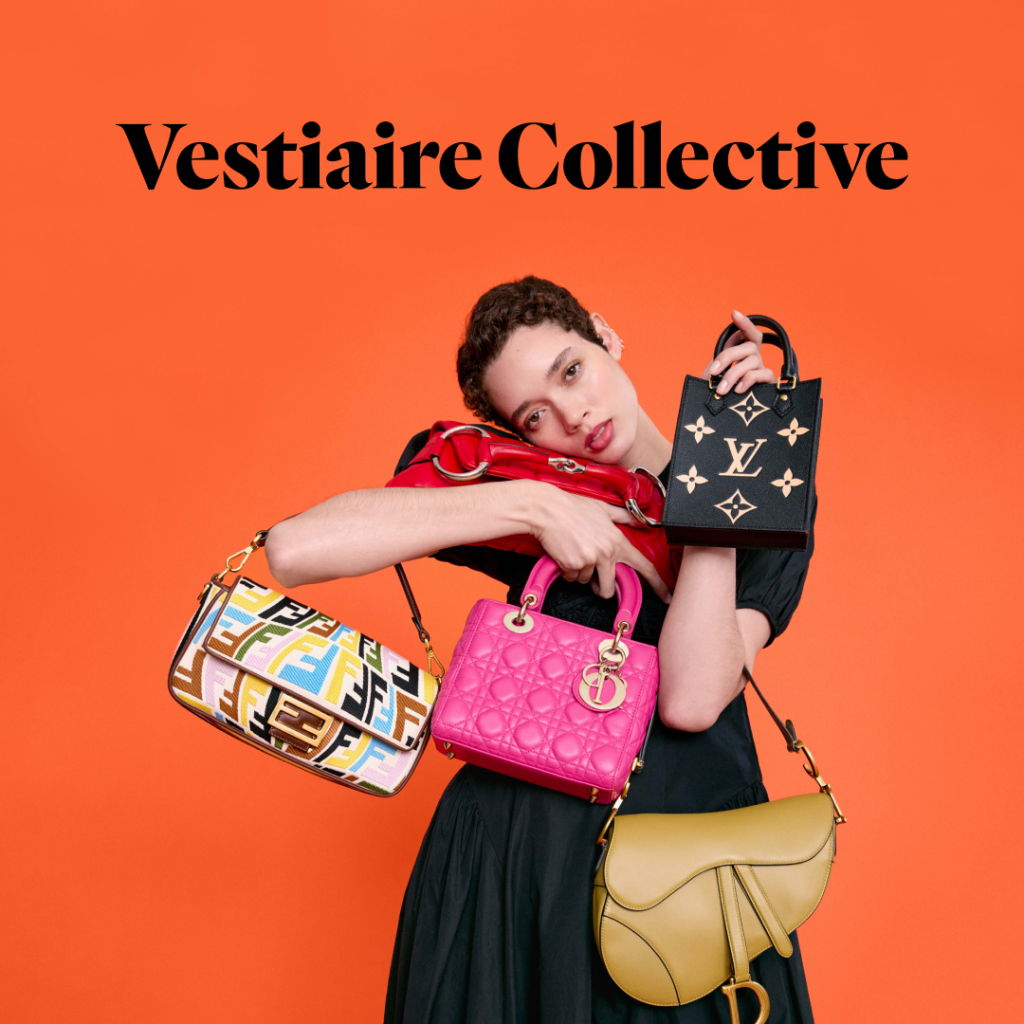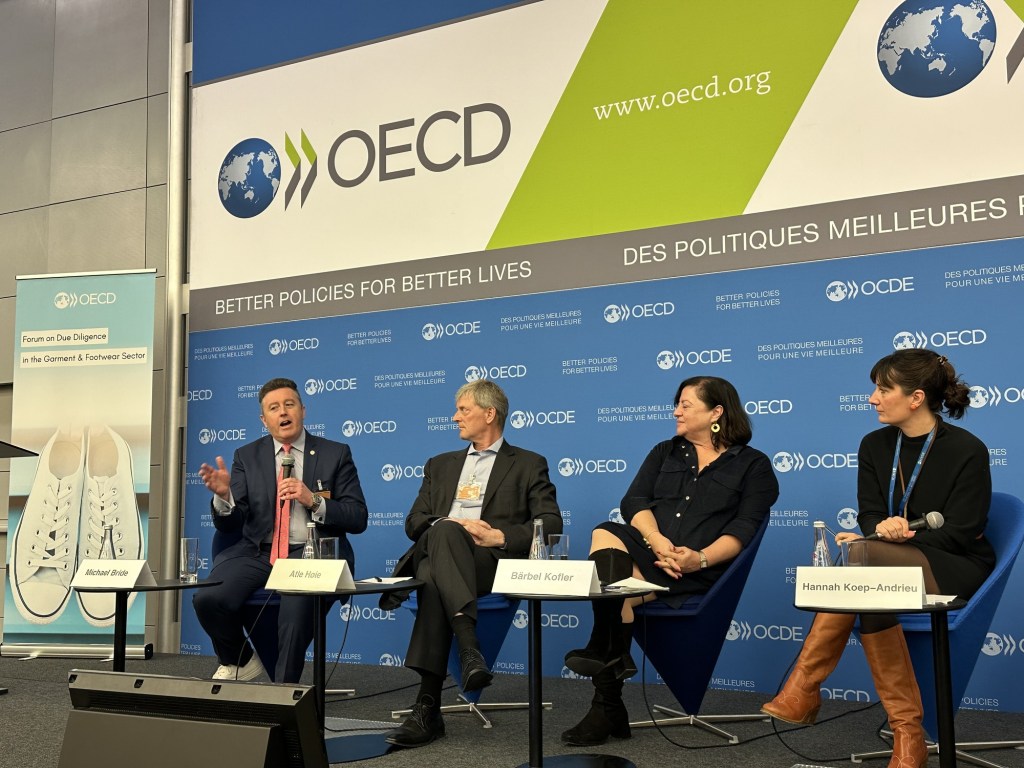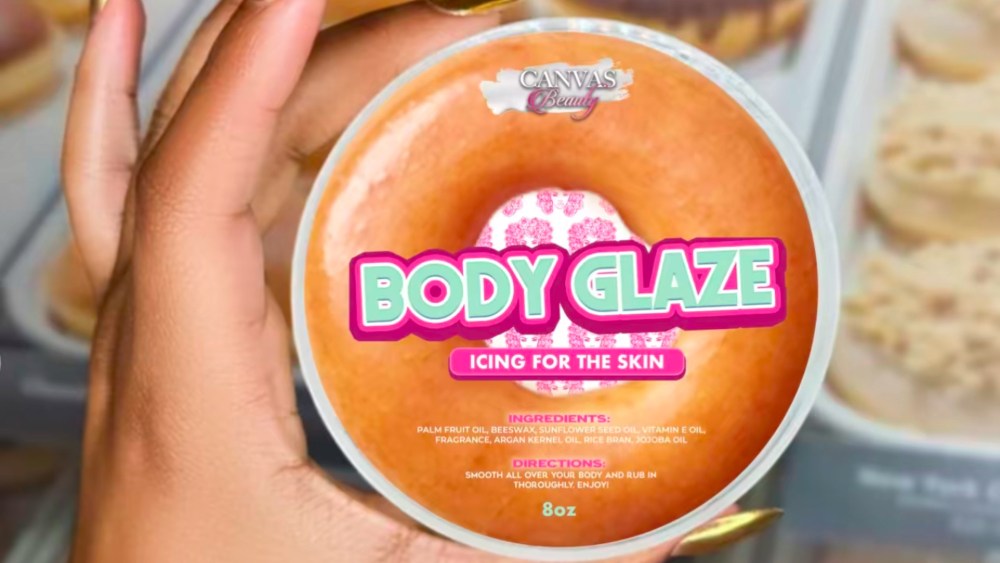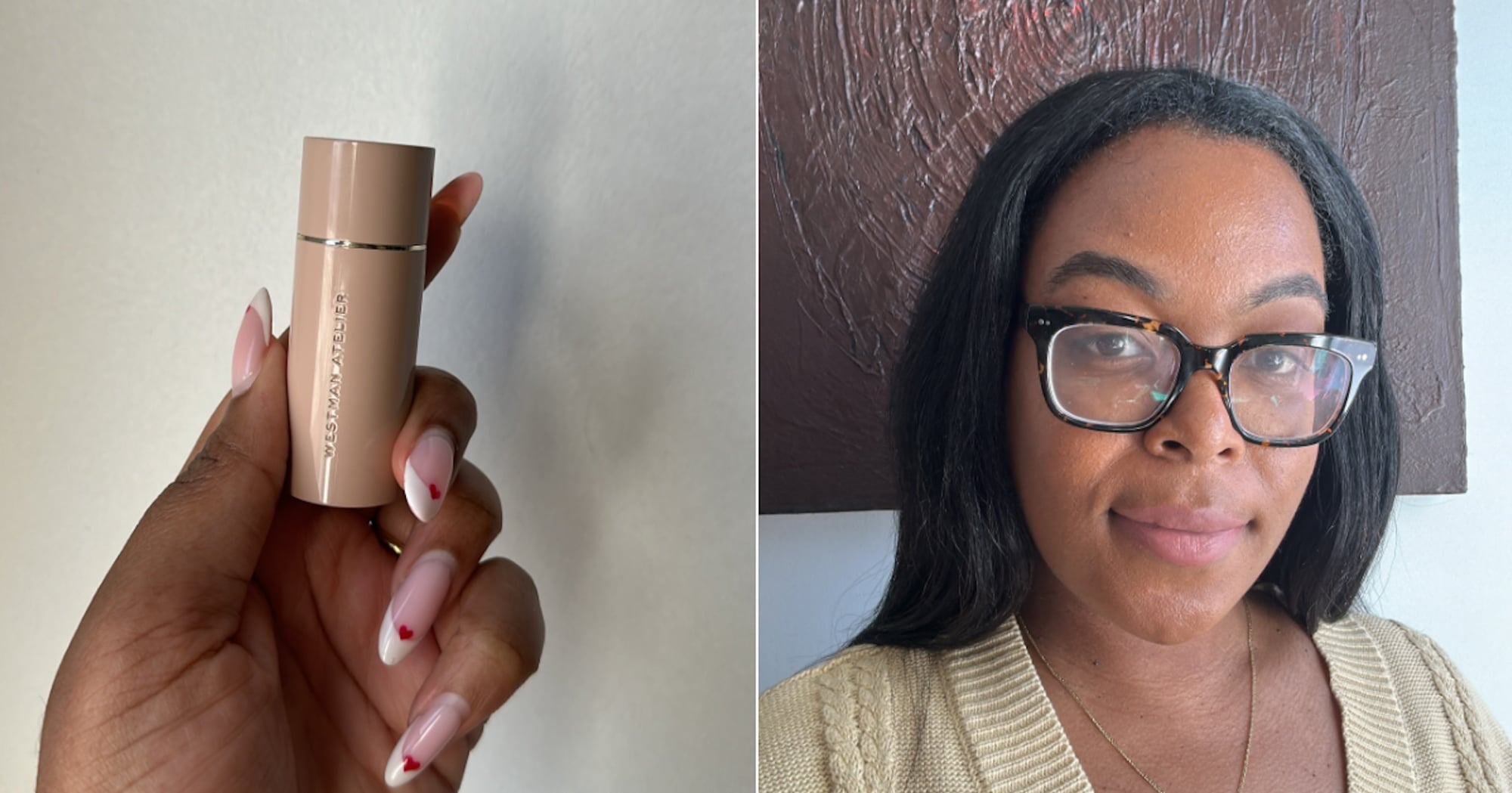Vestiaire Collective has launched a new advertising campaign as part of its strategy to expand its business in the U.S.
Founded in Paris in 2009, Vestiaire Collective has solidified its presence throughout Europe and Asia, and now looks to do the same in the U.S. The new campaign showcases its designer and vintage stock, as well as touts the benefits of shopping with the certified B Corp., a status Vestiaire achieved in 2021.
Vestiaire worked with New York-based creative agency Accompany Creative on the campaign, which carries the tagline “Parlez-Vous Vestiaire Collective?” The campaign leans into the company’s French heritage, but keeps it grounded by simply asking, “Do you speak fashion?” The campaign spots apply this language device across several differentiators, such as the platform’s designer label range, broad and diverse global seller base, proprietary authentication process, and competitive commission rates.
One of the spots frames the brand’s French heritage and the “Can you say/Do you speak” wordplay by offering a lesson on how to pronounce “Vestiaire” with a visual mnemonic of vests, T-shirts and blowing air.
The campaign breaks Friday and will run across national TV spots (CTV), paid social throughout the U.S. and Europe (Meta and YouTube) and online digital.
The new campaign is among a series of aggressive moves Vestiaire is making to further grow its U.S. footprint. The company recently introduced zero percent commission for sellers in the U.S. and U.K. (newer markets) on the platform , so the seller gets to keep all the money. Processing fees will apply. It also launched a VIP Consignment Program for its top clients in New York City.
Prior to this removal of seller fees, Vestiaire Collective offered one of the lowest seller fees among resale companies, at 12 percent, compared to what it said is over 20 to 80 percent across other resale sites. The usual payment processing fee of 3 percent is still applied to the sale to cover the external processing costs of transactions. Sellers from other markets other than the U.S. and U.K. still have seller fees.
Samina Virk, North American chief executive officer of Vestiaire, said the process of building the U.S. operation has taken place over many years. The French company, which launched in 2009, started its U.S. business in 2015. In 2022, Vestiaire acquired Tradesy, the U.S. pioneer in the fashion resale industry. By joining forces, Vestiaire and Tradesy significantly increased the size and reach of their peer-to-peer marketplaces.
“The goal there was to propel the growth of the U.S. through building our buying and seller community. We migrated everybody over to the platform which was very successful. We’ve now entered phase three, which is when I rejoined the company last February [2023],” she said.
Vestiaire operates in 80 countries with a large community of buyers and sellers. “My goal was very much how do we look at the team we want to have on the ground and how do we start building our brand?” she said. It launched a number of brand initiatives such as community moments in the Hamptons and Paris Fashion Week, and began working with a number of different stylists.
“This year we’re coming into it in a much bigger way,” said Virk. Last month, the company partnered with Academy Award-winning actress Jessica Chastain and stylist Elizabeth Stewart and sold the actresses’ red carpet pieces and items from her closet that she’s worn in public, donating all proceeds to Women for Women International. Chastain’s clothing sold out in two days.
A major initiative is the ad campaign, the first time the company has launched a brand campaign in the U.S. that speaks to all the things that makes Vestiaire unique.
“It’s all about making secondhand feel a lot more relatable,” she said. “We think it’s showcasing our French heritage in a playful way, and one that’s going to feel relatable and just show people what makes shopping on Vestiaire so unique.”
Jason Keehn, Accompany Creative’s founder, said, “This project is an ideal one for us, leveraging the agency’s background in fashion brand-building, and working with a client whose business model is truly driving commercial innovation in sustainability. Inspiring consumers to ‘Buy Better’ has been a strategic focus for Accompany since our beginning, and the fashion industry especially needs more champions of reuse and upcycling like Vestiaire Collective to take center stage.”

Asked if there’s a lot more work to be done to make Vestiaire top of mind among American consumers, Virk said, “Between our launch and Tradesy traction, we have built a loyal customer base, but there’s a lot more opportunity to go. The great thing about the U.S. consumer is that secondhand fashion has been growing tremendously, and it’s been growing on other platforms, but also brands are starting to resell. There’s a lot more focus on the impact of fashion on the environment, and how secondhand fashion not only gives you a variety, but it’s a responsible way to buy and sell. I think the timing is really great for us to make a bigger statement here.”
Describing the target customer in the U.S., Virk said, “The great thing is we’re a marketplace and we’re really buyers and sellers, and because we’re a marketplace, we’re asset light.” They’re not buying product and they’re not a retailer. She said they’re able to have a catalog that really enables discovery so it’s about “the thrill of the hunt.”
She said the average price point at Vestiaire is $700 for bags and $300 for clothing and shoes.
Vintage is popular on the site, and the last three months have seen strong interest in dresses and trenchcoats, as well as an interest in “quiet luxury.” In the next few weeks, there will be a big push in denim clothing.
The way Vestiaire Collective works is the seller posts an item, the buyer completes the transaction with Vestiaire, and the seller sends the product to Vestiaire, which checks it and authenticates it. Once approved, Vestiaire Collective initiates payment to the seller, and sends the product to the buyer. Vestiaire has four authentication centers in New York, Tourcoing in France, Crawley in the U.K. and Hong Kong.
Vestiaire is focused on designer, premium and high-end brands, and has banned fast fashion brands such as Asos, Shein, Burton, Fashion Nova, Pretty Little Thing, Missguided, Topman, TopShop, Zara and Gap on the site, as reported. It launched the fast fashion ban campaign in November 2022 (banning 33 brands), had another wave last November (banning 30 brands) and has another one coming, said Virk.
Virk said the biggest difference between Vestiaire and the RealReal, for example, is that Vestiaire is a marketplace and it’s not taking people’s products in. She said Vestiaire’s four pillars are taste, trust, community and sustainability.
“In the U.S., we’re seeing a lot of interest in clothing and shoes, and bags have always been a popular category, but I would say clothing and shoes have really gained momentum and popularity the last few years,” she said.
In the U.S., the top 10 in-demand brands in February (based on what people were searching for on Vestiaire) were Chanel, Louis Vuitton, Gucci, Prada, Dior, Celine, Balenciaga, The Row, Miu Miu and Christian Louboutin. The top U.S. selling brands in February on Vestiaire were Gucci, Louis Vuitton, Chanel, Prada, Burberry, Saint Laurent, Dior, Hermès, Fendi and Louboutin.
As reported, in January Vestiaire Collective launched a crowdfunding campaign in Europe to raise at least one million euros. They raised 3.7 million euros from individual investors as the Kering-backed business aims to become profitable by yearend and potentially go public. Vestiaire Collective advertised the crowdfunding, which was open to anyone over age 18 in Europe and the U.K., on its website and mobile app.
In mid-2022 Vestiaire Collective was valued at 1.4 billion euros.
As reported, in 2021, Kering and Tiger Global Management injected a $216 million funding round into Vestiaire with a plan to focus on global expansion. The company received a $64 million round of funding with investment in 2020 from Korelya Capital, the Asian-focused French firm cofounded by former minister of culture Fleur Pellerin and backed by Korean tech giant Naver, with the intent to expand in Japan and South Korea.
TO VIEW THE VIDEO:



